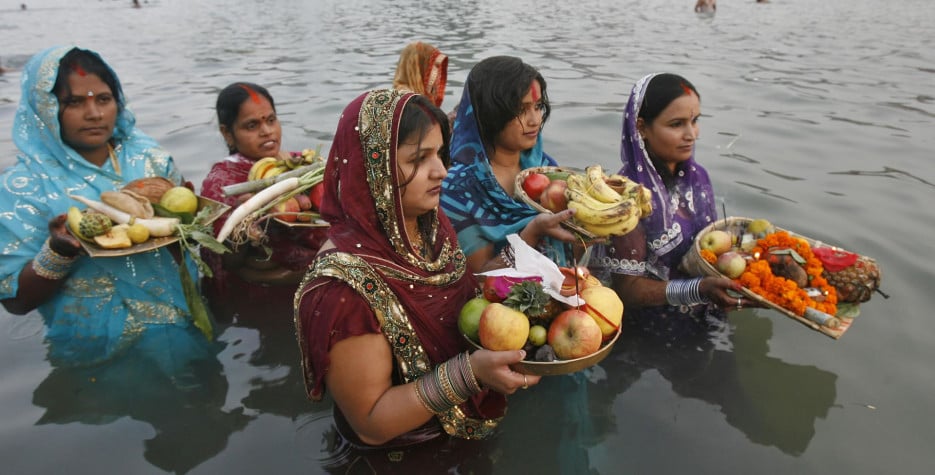When is Chhath Puja?
Chhath Puja is celebrated on the sixth day of the month of Karthika in the Vikram Samvat, which also means it is the sixth day after Diwali.
This ancient Hindu festival is dedicated to the sun god and his wife and is one of the most popular festivals in eastern Uttar Pradesh and Bihar. It is also an important festival in Nepal.
The festival lasts four days, with the third day generally being a public holiday in certain regions of India.
Traditions of Chhath Puja
During the four days, devotees perform the Puja to thank the Sun god for providing life on earth and seek his blessings and protection. Each day has its own activities and rituals:
Chhath Puja begins with the day known as Nahay Khay. On this first day, devotees take a dip in water and women take a single meal.
On the second day, known as Kharna or Lohanda devotees fast from sunrise to the sunset. After worshipping the Sun and the Moon, they prepare offerings of kheer (a rice pudding), bananas and rice for their family. After eating the offering, they fast for 36 hours without water.
Day three is known as Sanjhiya Gha or Sandhya Arghya. On this day the fast is observed and devotees offer worship to the setting sun.
On Usha Argya, the last day, the fast is broken after morning offerings are made to the rising sun.
In the Hindu tradition, the rays of the sun at sunrise are very important and have healing properties and can cure disease to ensure the health of family, friends, and elders. Devotees will pray in the morning facing east so that the rays fall on their front.
To access the river to perform some of the pujas, steps down to the water called ghats are created. In Delhi alone, the number of ghats run into the hundreds, with over 500 ghats set up in 2018 - this shows the popularity of this festival.


